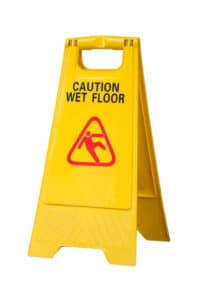Understanding Nevada Lemon Law
Buying a vehicle can come with some risk. New vehicles are purchased and leased in Nevada every day.
Most of the time it works out, and there are few problems. In some cases, vehicles that have defects are sold. No one wants to be sold a “lemon.”
Unfortunately, it does happen. The Nevada Lemon Law was enacted in 1983 to protect consumers purchasing a new defective vehicle.
Consumer protection was necessary to help those who had been sold or leased what was considered a “lemon.”
One of the key components of this law is that the vehicle must be replaced or refunded if it can’t be fixed in a reasonable number of attempts.
This gives the consumer legal protection against the manufacturers that sell them the defective product.
Coverage: The Lemon Law applies mostly to new vehicles sold. RVs, motorhomes, and off-road vehicles are not covered under these laws.
New vehicles with significant defects are protected.
Substantial Defects: Buying or leasing a new car with serious defects is covered by the manufacturer’s warranty. The defects of the vehicle can make it unsafe to operate. This is especially true if the braking, steering, or other system is faulty and unable to be adequately fixed after a number of tries. The value of the vehicle is also negatively affected if it is flawed.
Reasonable Attempts to Repair: If the vehicle is repaired over and over again and the problem remains, it can be considered a “lemon.” This typically means that multiple repair attempts were made within the warranty period. This is considered unacceptable. You have every right to have the vehicle replaced or fully reimbursed if you bought a “lemon.”
Responsibilities of Manufacturers: The law states that the manufacturer must replace the vehicle if it is a “lemon.” The model must be the same or comparable to the vehicle purchased. If there is a refund, it must be in full. This includes taxes and fees. A reasonable cost will be deducted for the time the vehicle was used.
Exclusions to the Lemon Law: It is important to understand that the law does not cover certain defects that were caused by the consumer. Nevada’s Lemon Law does not cover defects caused by neglect or abuse. If the vehicle was modified or altered, it will not be covered under these laws.
Dealers and manufacturers can make it difficult to get a new vehicle or your money back.
Having an attorney on your side that understands Nevada’s Lemon Law is important in these situations.
Richard Harris has been protecting Nevada since 1980.
We understand Lemon Law and will make sure you are not taken advantage of.
Call us today for a free evaluation.

Time Frame in Nevada to File a Lemon Law Claim
The Lemon Laws provide the consumer with protection against deceptive and unfair business practices.
Nevada law states that you must report the defective vehicle to the dealership.
This has to be done within the first year of the delivery of the vehicle or the expiration of the warranty.
This will depend on which comes first. If the vehicle is unable to be properly fixed and the issues resolved, you have 18 months from the original delivery date to file a claim.
It is vital that you act immediately if you are dealing with a “lemon.”
Don’t hesitate to call the Law Offices of Richard Harris today!
Steps for Filing a Lemon Law Claim
It is important to take immediate action as soon as you think you have a “lemon.”
If you do not file within the 18 months following the delivery of the vehicle, you may lose the right to file a claim. There are some steps that must be taken in order to ensure your claim is valid.
- If you believe that your vehicle is a lemon, report the defect in writing to the dealer or the manufacturer. This will show the proof of the defect and that you attempted to have it fixed.
- Keep all detailed records of the repairs of the vehicle. If there was maintenance done on the vehicle, keep the receipts. This paperwork will include the defect that is being fixed and how many times it has been worked on.
- Keep records of the number of days that the vehicle is in the shop.
- Keep records of all communications with the dealer or manufacturer.
- If the manufacturer or dealer does not replace or reimburse you for the vehicle, you will need to file a claim.
Dealerships and Manufacturers Obligations
Under the Nevada Lemon Law, there are certain obligations for dealerships and manufacturers.
If a consumer reports a defect in the vehicle, there must be an attempt to repair it.
This action must take place in a reasonable amount of time.
If after four attempts to repair the problem, the vehicle is still defective, they have a legal obligation to replace the vehicle or refund the consumer.
If the vehicle is out of service for 30 days in total, they must also provide the consumer with a replacement or refund.
If the manufacturer or dealership refuses to honor these commitments, they may be subject to legal action.
When dealerships are the designated agents of the manufacturer, they can also be held accountable.
There have been cases where the manufacturer or the designated agent made false representations of the vehicle.
Our legal experts will take a look at all the factors of your case. We will make sure that they are handling their legal obligations properly.
The Lemon Law Buyback Process
This process is designed to protect the consumers that purchased a defective vehicle.
This is for circumstances where a vehicle can’t be repaired after a reasonable number of attempts.
Let’s take a further look into the Lemon Law Buyback.
Recognizing the Problem: The vehicle is unable to be fixed, and the defect persists. The defect can affect the safety of the vehicle. It will also have a negative effect on the value of the it as well. The first step is to identify that the vehicle is in fact a “lemon.”
Filing a Complaint: A fully detailed lemon law complaint must be filed with the manufacturer or dealer where the vehicle was sold. Details will include the defects, repair attempts, and number of days it has been out of service.
Manufacturer’s Response: Once the vehicle qualifies and is considered to be a “lemon,” the manufacturer must replace the vehicle with a comparable one or give a refund to the consumer.
Label the Vehicle: Once the vehicle is repurchased, it will now be labeled as a Lemon Law Buyback. This will be documented in the DMV records. Any new buyers will be aware of the vehicle’s defect history. A decal will be placed on the vehicle to designate its status.

Hiring a Nevada Lemon Law Attorney
Having an attorney who is an expert in Lemon Law can be helpful. A lawyer can advocate for and represent you.
Taking on the dealers and manufacturers on your own can be tricky.
It is more than likely that they will put up a fight before they hand you over the keys to a new vehicle.
Negotiating a fair reimbursement of the car can also have difficulties. It is vital that the attorney you hire has previous Lemon Law case experience. It is also just as important that they have a successful record when it comes to these claims.
Understanding the Law: It is beneficial to have a legal expert help you to resolve your issues with dealers and manufacturers. This will let them know that you are serious. With an attorney on your side, you will be taken more seriously.
Negotiation Experience: A skilled Lemon Law attorney will be well versed in negotiation tactics. Depending on the vehicle and time you had, it will play a role in the negotiations. Replacing the “lemon” with a comparable vehicle or getting a refund is the goal.
Legal Support: Being able to ask questions and get answers from a knowledgeable attorney is always helpful. Understanding the Lemon Law and knowing how to proceed is vital. An attorney can help guide you through the legal process.
The Richard Harris Law Firm is here to help.
Our highly rated Lemon Law attorneys are ready to hear your case.
Contact us by phone, email, or just come by the office in person.
Used Vehicle Buyers’ Rights
The Lemon Law does not cover used vehicles. However, there are laws in Nevada that do protect buyers.
Dealerships that sell used vehicles with over 75,000 miles must be examined.
Engine and drivetrain inspection reports must be submitted to buyers. Defects must be disclosed by dealers if they are aware of any.
If the defects were not disclosed at the time of the sale, buyers have rights.
Buyers can submit a complaint about the dealer to the Department of Motor Vehicles (DMV).
Complaints should have detailed information of the defect. Complaints should include copies of repair orders and any other information that supports the defect and claim. A statement in the claim should provide how you would like to resolve the issue.
Once the DMV receives this information, it has 10 days to let the dealer know about the complaint.
The DMV will then do their own investigation on the vehicle and the circumstances surrounding the complaint.
At this point, if it is determined that the dealer violated the rules, they will be required to resolve these issues.
This can then result in replacing or refunding the buyer for the purchase and taking the vehicle back.
History of the Lemon Law in the US
Lemon Law provides vehicle purchasers protection if the goods fail to meet certain standards.
If the quality of the product is flawed and defective, it is considered to be a “lemon.” This is usually a term for motor vehicles like cars, trucks, and motorcycles. Every state in the US and the District of Columbia have Lemon Laws. Each individual state has their own variation and criteria of the law.
The law requires the auto manufacturer to replace or give a refund if the vehicle is defective. Because it is the manufacturer that warrants the vehicle, they are responsible for buying it back.
The dealer is usually not. It has no or limited obligation under these laws.
Some states have laws that cover certain types and classes of vehicles. They may cover vehicles that are used for personal and business use differently.
Lemon Laws may have a gross weight limit. Some of the states will cover used cars under their laws, while Nevada does not.
States like California have laws that cover boats, electronics, appliances, and vehicles.
There are some states where Lemon Laws can be transferred from state to state for military personnel.
It is important to have an attorney that understands all the different variations of these laws. This will give the buyer their best chance at having a successful outcome under the law.
Under federal law, there are two types of warranties when purchasing a product. Express warranties are specific to product repairs.
These are usually made in writing and are provided by the manufacturer.
These are often found in the owner’s manual and the sales marketing material. Implied warranties that are not in writing have to do with the certain minimum quality standards of products sold. If these standards are not met, then it may be required to replace the product or offer a refund.
Magnuson-Moss Warranty Act
This is a law that was enacted in 1975. It protects citizens of all the states and ensures that manufacturers honor their warranties.
This law is intended to reduce the chance that buyers are misled when they make a purchase.
This act also provides protection in appliances, motor vehicles, and other products.
Under this law, the warrantor may be obligated to pay for the costs of the prevailing attorney. Consumers should know their rights when it comes to Lemon Laws and the Magnuson-Moss Warranty Act.
If you have any questions on Nevada Lemon Law, call The Law Offices of Richard Harris.





























